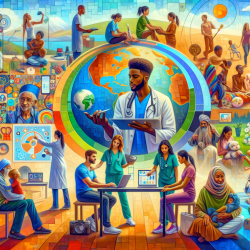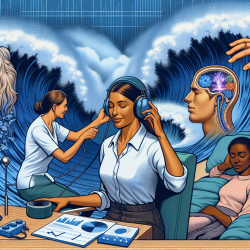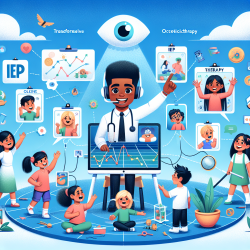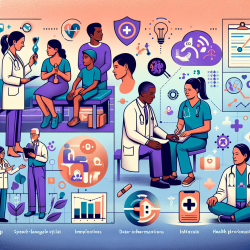Introduction
As professionals dedicated to improving outcomes for children, it's crucial to explore how global experiences can enhance our skills and broaden our perspectives. A recent study titled "Students with global experiences during medical school are more likely to work in settings that focus on the underserved: an observational study from a public U.S. institution" provides compelling evidence that global health electives during medical school significantly increase the likelihood of working with underserved populations. This blog will delve into how these findings can be applied to the field of speech-language pathology and encourage practitioners to seek similar experiences to enhance their skills.
The Power of Global Experiences
The study surveyed graduates from a large public medical school and found that those who completed global health electives were 22% more likely to work with underserved populations. These experiences improved cultural awareness, language skills, and the ability to work in technology-limited settings. For speech-language pathologists, these skills are invaluable. Understanding cultural nuances and overcoming language barriers are crucial in providing effective therapy, especially in diverse or underserved communities.
Applying the Findings to Speech-Language Pathology
While the study focused on medical students, the implications are relevant across healthcare disciplines, including speech-language pathology. Here are ways practitioners can apply these findings:
- Seek Global Opportunities: Engage in international volunteer programs or professional exchanges to gain firsthand experience in diverse cultural settings.
- Enhance Cultural Competency: Participate in workshops or training sessions focused on cultural awareness and language skills.
- Collaborate with Global Health Initiatives: Partner with organizations that focus on underserved populations to gain insights and experience in resource-limited environments.
Encouraging Further Research
The study highlights the need for more research on how global experiences influence career choices and skills development. Speech-language pathologists can contribute by documenting their experiences and outcomes from global engagements. Sharing these insights can help build a body of evidence supporting the integration of global health experiences into professional development programs.
Conclusion
Incorporating global experiences into professional development can significantly enhance the skills and perspectives of speech-language pathologists. By embracing these opportunities, practitioners can better serve diverse and underserved populations, ultimately leading to improved outcomes for children. To explore the original research paper, please follow this link: Students with global experiences during medical school are more likely to work in settings that focus on the underserved: an observational study from a public U.S. institution.










